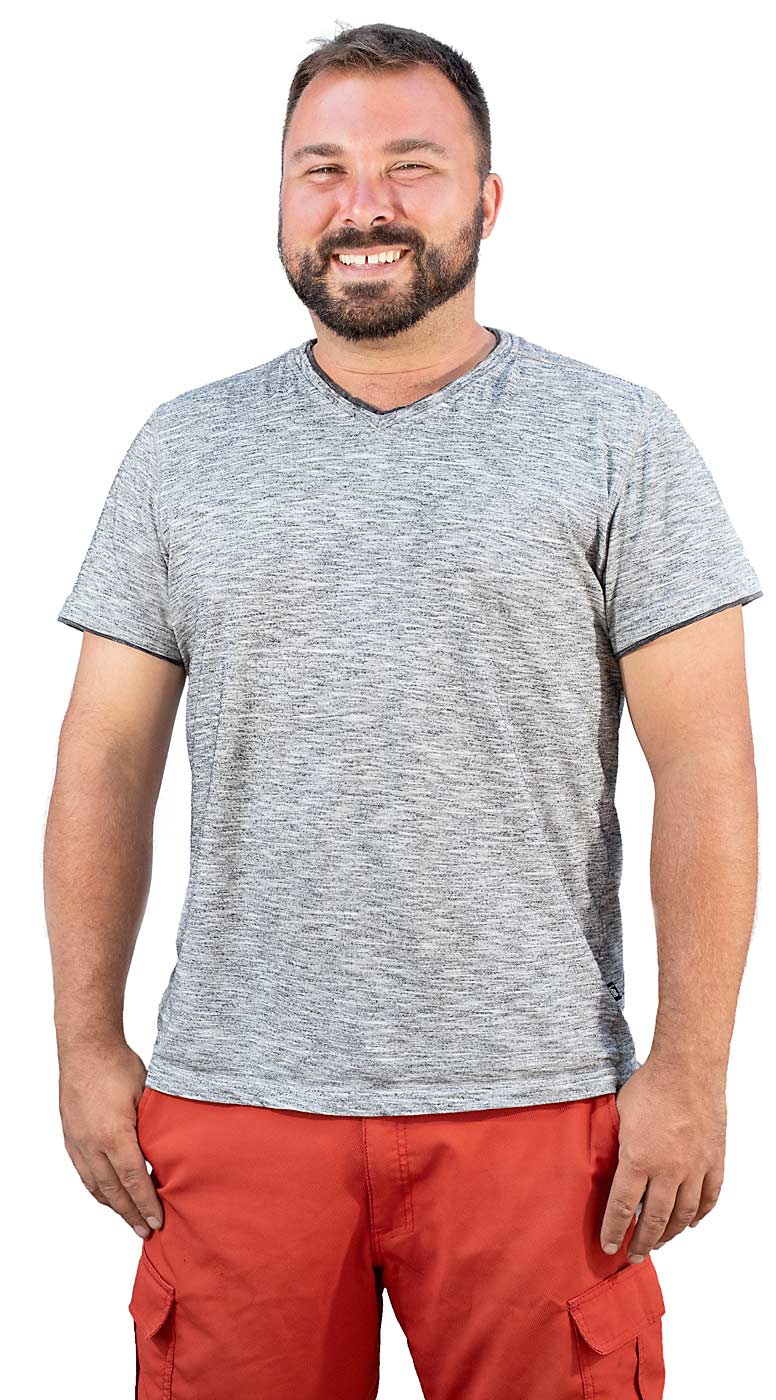family background / Adrian began farming about five years ago, after obtaining degrees in water resource science and geology. He returned home to Summerland and is now leasing and managing several smaller orchards. He is the son of Shirley Hansen and Adrian Arts.
grower / Summerland, British Columbia
age / 36
crops / Cherries and apples
business / Kamla Orchards
How did you get your start?
I ended up pursuing farming as a fluke chance on an online job ad. When I was at university, I managed the food bank and, even then, my passion for food and water policy allowed me to work with various agricultural organizations.
At that time, I knew I wanted to move back home in British Columbia, but I couldn’t find work in my field. I looked at other opportunities and applied at Carcajou Fruit, even though I’d never done anything in farming. I got a return phone call asking if I’d like to learn how to prune — and that’s where it all started. I fell in love with it from that point.
Has your degree in water management helped?
What I learned from one of my university professors was that getting your master’s degree isn’t about what you learn, it’s the fact you’re learning how to learn and source information.
I’ve taken that idea and turned it into a job, essentially. I’m doing a lot of reading on research studies then following it through in the orchard.
In a roundabout way, my degrees have helped me to work in agriculture, but I’m not doing rock samples in the orchard, analyzing stream flow models or hydrogeologic data for groundwater penetration.
Why did you choose to lease your own farm?
It was because of an opportunity. My employer introduced me to another grower who was retiring and wanted to lease his land — so I did.
Then another piece came up, then another and another, all while working a full-time job. I love it here.
It’s a real small community where everyone is pretty helpful, and that’s something really important when you decide to make a career change.
Being new to the industry, what are you bringing that’s new?
A fresh set of eyes and a background in something that’s not farming. I don’t know what’s right or wrong and I treat the farm very much like a laboratory.
To me, if I see a problem, I dive in to scientific, peer-reviewed literature to see what researchers have done — then I try it out in the orchard. Some farmers have told me that a farm isn’t a lab or research facility.
For me, treating problems more like a science project, whether it be different pruning styles, herbicides or spray schedules, helps me learn and see what happens.
Sometimes good comes from that experimentation, other times something terrible comes from it and I learn from it. I know when I walk away from those trials, I’ll know to never do it again, or I’ll put it into a regular routine.
What have those learning lessons been like so far?
One of the things I believe is really important: learning from other growers. I have interviewed many different growers in British Columbia, from Coldstream down to Osoyoos, to talk with them about their tips, what they use or what to avoid.
I want to learn things, so I don’t make any colossal errors. I ask questions like, “Can you give me a rundown of your 30 years of experiences to help me become the best grower I can be in five years?”
I’ve found that so many farmers disagree on just about everything. Yet, I’ve found they have the same tips, tricks and ideas. I’ve been able to weed through all of those pieces of information for my own farm.
What advice would you have for young growers?
Talk with growers around your area. Trial and error is great, but it’s better if you have that information about what you should try and what you should not try from someone else when you get started.
— by TJ Mullinax







Leave A Comment